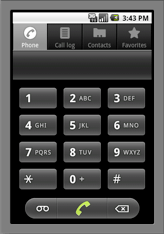21
1
Inspired by the Google Code Challenge:
The Latin alphabet contains 26 characters and telephones only have ten digits on the keypad. We would like to make it easier to write a message to your friend using a sequence of keypresses to indicate the desired characters. The letters are mapped onto the digits as shown below. To insert the character B for instance, the program would press 22. In order to insert two characters in sequence from the same key, the user must pause before pressing the key a second time. The space character ' ' should be printed to indicate a pause. For example, 2 2 indicates AA whereas 22 indicates B.
Each message will consist of only lowercase characters a-z and space characters ' '. Pressing zero emits a space.

Your challenge is to write the smallest function which takes the input string, and returns the sequence of keypresses necessary to produce the input as string or output it to stdout. The function which is the least amount of bytes wins.
Example Input/Output
phone("hi")
44 444
phone("hello world")
4433555 555666096667775553
Other clarifications
- Pauses must only be added when necessary and must be a space ' '.
- Each message will consist of only lowercase characters a-z and space characters ' '. Print
0to signify spaces. - No external libraries.
- Only the input string may be passed to your function.
- To make other languages competitive, the primary function declaration doesn't count, and nor does importing other standard libraries.
#includes,imports, andusings don't count. Everything else does. This does include#defines and helper functions. See rule 2 in this question if you are confused. - Multiple spaces can be denoted as
00or0 0since you don't really have to pause between a space
1
Related with this: http://codegolf.stackexchange.com/questions/21327/letters-in-phone-numbers
– Victor Stafusa – 2014-03-04T17:26:03.283Can we assume the input is lower/upper case? – Phil H – 2014-03-04T17:26:50.443
@PhilH "lowercase characters a-z and space characters ' '" – Danny – 2014-03-04T17:28:01.877
Do you consider brackets
{}a part of the function signature? For example, if my code isfunction f(){alert('hi');}, should I count the characters ofalert('hi');or{alert('hi');}? – ProgramFOX – 2014-03-04T17:28:48.500@ProgramFOX
alert('hi')is only counted. – Danny – 2014-03-04T17:29:35.2672As far as I remember
t9works differently: you have to click each key once to get a word. – VisioN – 2014-03-04T18:07:25.333@VisioN agreed, I copied googles name for the challenge. If you got a better name for it feel free to edit. My first phone worked similar to above for texting I don't know if it had a name for it like T9 though... – Danny – 2014-03-04T18:11:01.657
@Danny Maybe just
– VisioN – 2014-03-04T18:14:58.580Phonewords(by Wikipedia).@VisioN that looks to use one number to represent a letter and is just for phone numbers. I think Multi-tap sounds closer.
– Danny – 2014-03-04T18:17:14.930@Danny Ah, yeah! This is the right word. – VisioN – 2014-03-04T18:17:57.717
Is a pause required to be a space, or can it be something else? – Kendall Frey – 2014-03-04T18:20:16.107
@KendallFrey Yes pause must be a space – Danny – 2014-03-04T18:22:16.827
Does 0 have to be allowed, or is it really only a-z and space? – None – 2014-03-04T18:23:34.657
So if I enter "e0g", it prints "33 4"? – None – 2014-03-04T18:26:29.417
@hosch250 oh. No. The input is only 'a-z' and ' '. There are no numbers in the input. See second comment. – Danny – 2014-03-04T18:27:17.407
Well, you stated: •Each message will consist of only lowercase characters a-z and space characters ' '. Pressing zero emits a space. – None – 2014-03-04T18:27:51.720
@hosch250 that is meant for the output
0emits a space. Maybe that could be worded better. Input will always be 'a-z' and ' ', sorry if any of my other comments might of mislead you. – Danny – 2014-03-04T18:29:20.070